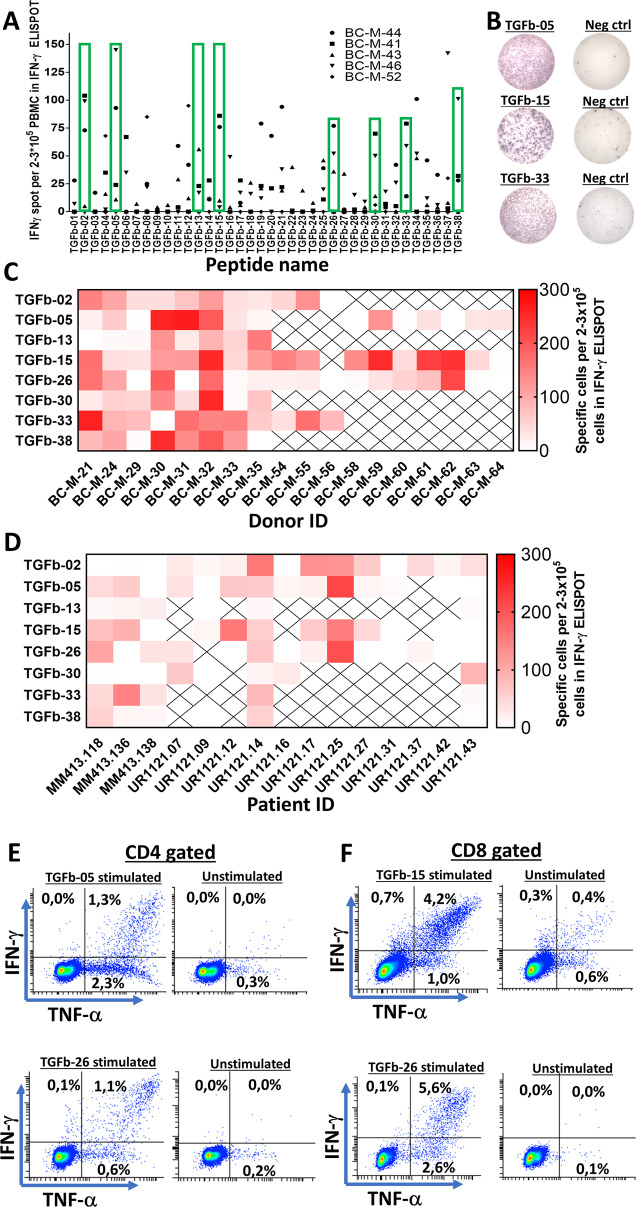Fig. 2.
In vitro responses against several TGFβ1-derived epitopes. A Peripheral blood mononuclear cells from five healthy donors were analyzed for in vitro responses against 38 20-mer peptides derived from the TGFβ1 protein. Each peptide had 10 amino acids overlapping with the adjacent 20-mer peptide. Cells were stimulated once with a pool of three peptides and restimulated with each peptide individually in the ELISPOT assay after 7–9 days of incubation. Green rectangles depict the lead epitopes, which were chosen upon analyzing the immune responses in the five healthy donors. B Representative ELISPOT responses against the identified lead peptides. C Heatmap depicting the amplitude of the responses in PBMCs from healthy donors against the lead epitopes. X in the heatmap indicates that the peptide was not tested in the donor. The names on the x axis refer to the healthy donor ID. D Heatmap depicting the amplitude of the responses in cancer patient PBMCs against the lead epitopes. X in the heatmap indicates that the peptide was not tested in the patient. The names on the x axis refer to patient IDs. E CD4+ responses in T cells from a cancer patient against TGFβ epitopes using ICS. F CD8+ responses in T cells from a cancer patient against TGFβ epitopes using ICS

